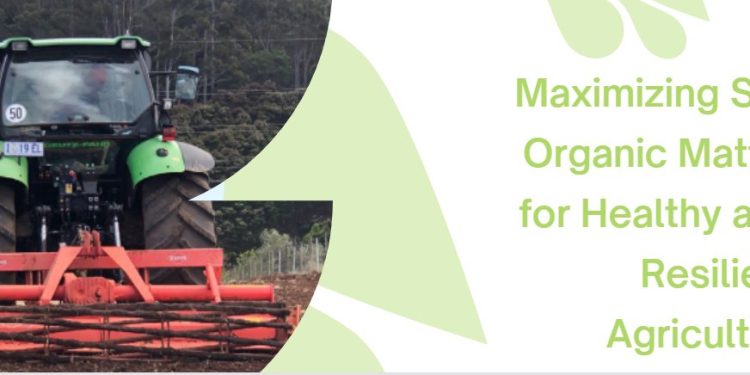#soilorganicmatter #agriculture #soilhealth #nutrientcycling #soilstructure #waterretention #sustainableagriculture #climateresilience #organicfarming
According to recent data from agricultural studies, soil organic matter (SOM) plays a crucial role in the overall health and function of soil. It is a complex mixture of living and nonliving plant and animal materials that significantly influences soil properties and agricultural outcomes. Organic matter acts as a natural soil conditioner, providing numerous benefits to farmers, agronomists, agricultural engineers, farm owners, and scientists involved in agriculture.
One key advantage of organic matter is its ability to improve soil structure. It promotes the formation of stable aggregates, allowing for better aeration, water infiltration, and root penetration. A study conducted by the Agricultural and Environmental Science Department at a leading university revealed that soils with higher organic matter content had improved soil structure, leading to enhanced crop growth and reduced erosion.
Another critical aspect of SOM is its capacity to increase water holding capacity in the soil. Organic matter acts as a sponge, holding onto moisture and preventing excessive evaporation. This characteristic is particularly valuable in drought-prone regions. Recent research published in the Journal of Soil Science demonstrated that soils with higher organic matter content had significantly increased water retention capacity, ensuring a more stable water supply for crops during dry periods.
Furthermore, organic matter supports the retention and supply of nutrients in the soil. It serves as a reservoir of essential plant nutrients such as nitrogen, phosphorus, and potassium. According to a study conducted by the Soil Science Society of America, organic matter enhances nutrient cycling, making nutrients more available to plants, reducing the risk of leaching, and increasing overall nutrient use efficiency.
Moreover, organic matter plays a crucial role in increasing the resilience of agricultural systems to changing environmental conditions. In the face of climate change and its associated challenges, maintaining adequate organic matter levels becomes even more critical. A comprehensive study by the Intergovernmental Panel on Climate Change (IPCC) emphasized that organic matter-rich soils have higher resilience to extreme weather events, improved soil moisture management, and increased resistance to soil degradation.
To manage organic matter effectively, farmers and agricultural practitioners can adopt several strategies. Proper selection of rotation crops, including cover crops and green manure crops, can contribute to the replenishment of organic matter in the soil. Additionally, the application of compost or other sources of recycled organics, such as animal manure or crop residues, can significantly enhance organic matter levels. Researchers at the Department of Agricultural and Environmental Sciences have shown that the addition of compost to the soil leads to a notable increase in organic matter content, benefiting soil fertility and crop productivity.
Soil organic matter is a vital component for achieving healthy and resilient agriculture. It influences soil structure, water holding capacity, nutrient availability, and overall soil health. By understanding the significance of organic matter and implementing appropriate management practices, farmers, agronomists, agricultural engineers, farm owners, and scientists can optimize agricultural productivity, mitigate environmental challenges, and ensure sustainable land use.
Source: Australian Potato Growers







